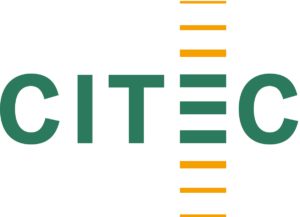The Future of Psychotherapy
PsyCurio
Enhance your therapy sessions with interactive & immersive VR-Scenarios from our medically certified Software!
Virtual Reality (VR) creates realistic experiences…
… that would otherwise require a lot of resources (in-vivo) or are only possible through imagination (in-sensu). In VR-Therapy, we use these virtual experiences to effectively treat mental illnesses.
A huge & growing body of clinical evidence shows that VR-Therapy is as effective (or even more effective!) than traditional treatment, and can be used for a wide variety of disorders, including Addiction, Phobias & Post-Traumatic Stress Disorder (PTSD)!
We are PsyCurio
PsyCurio is one of the leading start-ups for the development of VR psychotherapy solutions in Germany and worldwide. We are continously growing and expanding our product to help as many patients as possible with a wide variety of psychological disorders to increase their mental health.
VR Software
Our app consists of a wide variety of virtual environments that can be used by therapists to treat many different disorders through VR exposure therapy and other interactive tasks and modules.
Certified Training
We offer certified and state-accredited education courses. At PsyCurio, you can not only deepen your knowledge of virtual reality therapy and explore the latest advancements in VR technology, but also accumulate continuing education credits.
Known from:
What makes us different
Interactive
In Contrast to many other providers we don’t use 360-degree videos but instead provide interactive and reactive environments to ensure a high grade of immersion for the best treatment effect.
Certified & Clinically Proven
The effectiveness of our treatment was tested in multiple clinical studies. Moreover, PsyCurio conforms with the European health and safety standards and is CE-certified as a medical product.
Latest Technology
We only use the latest Standalone VR Headsets to ensure the best possible quality and user-experience! You get inside-out 6DOF motion tracking with 4k+ resolution at 90Hz in a lightweight package.
Ease of use
All you need is the VR headset – The software is already pre-installed and no external hardware such as computers or imaging sensors are needed. Get started whenever and wherever you want!
More Questions? Reach out!
By The Numbers
Disorders*
Interactive Modules*
Doctors & Therapist
%
NET Promoter Score
*learn more about the disorders we treat and our different interactive modules we offer here:
Social Anxiety
We use VRET to treat social phobia/anxiety (F40.10).
There are 4 exposition scenarios to treat the fear of public speaking (seminar, conference, classroom, lecture hall).
Also, there are 3 modules to practice everyday situations (subway, supermarket, bar).
And last but not least a complete section of our psychoeducation module is designated to inform about social phobia.
Specific Phobias
There are many different specific phobias (F300.29). Our modules enable in-virtuo exposition to some of the most common ones:
- Acrophobia – Fear of heights
- Arachnophobia – Fear of spiders
- Claustrophobia – Fear of enclosed spaces
- .. and more to come!
Depression
We treat depression (F33) in three ways:
- Psychoeducation
- Autobiographical Exercise (using patients’ own pictures)
- Meditation / Mindfulness
PTSD
To assist in the treatment of PTSD (F43.10), we provide an in-virtuo version of the vault-exercise, a stabilisitation exercise based on Luise Reddemann’s work, which is normally only done in-sensu.
Addiction
We have exercises for two of the most common addictive disorder:
- Alcohol Use Disorder (F10. 20)
- Tobacco Use Disorder (F17. 200)
Addictive symptoms should be reduced through:
- Approach-avoidance tasks and
- Cue-exposure training
Curious how it looks?
Ready To Get Started?
Start making a difference with VR-therapy for your own practive in 3 easy steps!
1. Find a solution that works for you
Set up a call and we will figure out the right product for you!
2. We send you the Headset
Our partner company VR-Expert sends you the VR headset of your choice. The software, including all scenarios, is already installed on the headset. So, no confusing set-up process or additional hardware (e.g. computer) are required. If you need help getting started, we can help you with the first steps with a video call.
3. Treat your patients using Virtual Reality
With our software, you will bring your practice to a new level and help your patients in an effective, innovative and fun way!
Testimonials
Our Partnerships
PsyCurio
The Future of Psychotherapy
More Questions?
Ready to get Started?
























